Global Governance
Your Present Location: PROGRAMS> Global Governance-
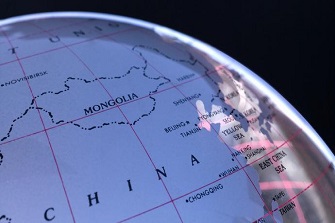
He Yafei: Present-day World Needs to Uphold and Rebuild Multilateralism
During a recent personal discussion about multilateralism and in response to witnessing the ongoing chaos worldwide, former Slovenian President Danilo Türk stated to me that the world today is going “from hopeful to possible success.” From our conversation, we both came to the conclusion that although multilateralism is under attack and the global governance regime is porous, international collaboration can still be reborn and can ultimately succeed with support from such emerging countries as China and others.
2019-08-16 -

He Weiwen: Why the U.S.’s 90 day ultimatum to the WTO will get it nowhere
U.S. President Donald Trump issued a White House Memorandum (hereafter referred as the Memo) on July 26, on reforming the WTO’s developing economy status. The Memo set a 90-day ultimatum to the WTO to change the developing economy status of several WTO members, including China. If the WTO fails to meet the deadline, the U.S. says it will act unilaterally. The Memo, harsh in wording, was in fact neglected in the WTO and refuted immediately by China.
2019-08-09 -

Liu Zhiqin: China’s coordinative development economics powers up economy, global governance
With coordinative measures, China has pushed for progress and the evolution of history. Following the coordinative principle, the country has dealt with many historical issues and built up a foundation for modernization.
2019-07-12 -

After 20 years, is G20 fading into insignificance?
Leaders from the world's wealthiest countries will land in the Japanese city of Osaka for the annual G20 summit over the upcoming weekend eager to overhaul a creaky global economy further dimmed by uncertainty.
2019-06-25 -
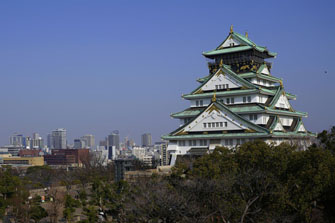
G20 summit intends to pull China-US ties away from brinkmanship
When Chinese President Xi Jinping meets his US counterpart Donald Trump in Japan at the end of the month they are expected to discuss a broad range of issues, including the trade war, in an effort to stop the relationship from tilting towards sustained confrontation, analysts said.
2019-06-21 -

He Yafei: The World Order's Biggest Seismic Shift in a Century
President Xi Jinping has pointed out on many occasions that the world is undergoing changes not seen for a century. For nearly 100 years, human beings have experienced two world wars, the Great Depression, the financial crisis, and countless regional hotspots and local wars. At the same time, the establishment of an international system centered on the United Nations, including the Bretton Woods system, has given the world a measure of overall peace for more than 70 years. The world economy has also made progress in leaps and bounds. Countries have reached a level of interconnectedness and interdependence in politics, economy, culture, science, and technology that has not been seen for 100 years. Today, the world is once again facing big changes, bringing about strong shocks and great uncertainty. Human beings are once again confused by the world they live in and are anxious about the prospects of the world order. We need to think hard about what these changes mean to the future of the
2019-05-05 -
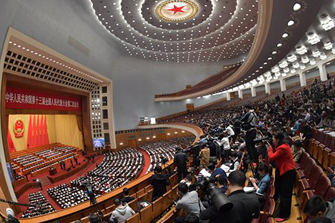
John Ross: China's NPC tackles global slowdown and climate change
At the annual National People's Congress (NPC) meeting, China has set its economic growth target for 2019 at 6.0 to 6.5 percent. To put this into comparison with the word's three largest economies, China is expected to grow this year more than twice as fast as the U.S. and more than three times as fast as the EU.
2019-03-12 -
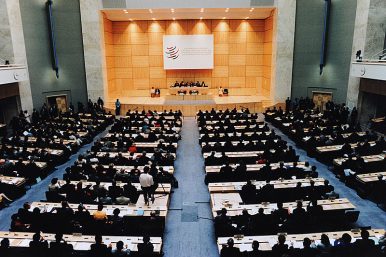
Chen Dingding: How Does China Really Think About WTO Reform?
It has been roughly two decades since China was permitted to join the World Trade Organization (WTO) in 2001. Prior to its accession, there was one economic metric on which it already ranked first. China, by multiple estimates, had the largest economy outside the WTO, ranging from foreign trade to the stock of foreign direct investment. Given the skyrocketing growth of the Chinese economy during that time, it takes very little imagination to foresee that China’s leadership came to appreciate membership in the WTO as a watershed for the country to embark on a more promising economic future.
2019-03-06 -
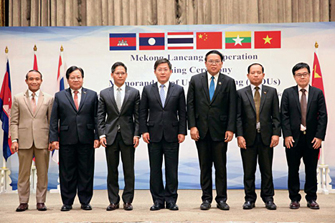
Danilo Türk: Water as an Instrument of Peace
China is in a good position to exercise leadership. Not only has China become the second largest economy in the world, it is already among the most important players in the field of trans-boundary water cooperation. China is a source of several rivers supplying South and South-East Asia with water.
2019-03-05 -
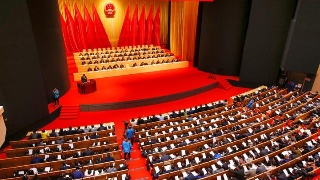
World experts expect greater role of China in global governance
As the annual sessions of China's top legislative and advisory bodies approach, world experts look forward to a greater role of China in improving global governance.
2019-03-04 -

China embraces 'Globalization 4.0' at Davos
From January 22 to 25, the Alpine town of Davos in Switzerland has attracted a wide range of global business leaders and politicians for its annual World Economic Forum (WEF), with the theme of “Globalization 4.0: Shaping a Global Architecture in the Age of the Fourth Industrial Revolution”.
2019-02-15 -
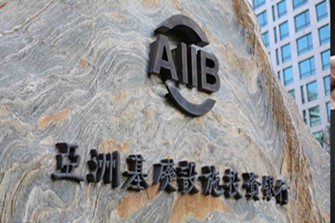
Liu Zhiqin: The secrets lie in AIIB's success
The Asian Infrastructure Investment Bank (AIIB) is a multilateral development bank proposed by China and jointly established by 57 countries on December 25, 2015. It began operations on January 16, 2016, and it has now grown to 93 approved members worldwide.
2019-01-18 -

He Weiwen: historic value of the past 40 years
December 2018 marks two simultaneous 40 years anniversaries of historic significance: China and the US established diplomatic relation on December 16, 1978, and China launched reform and opening-up on December 18, 1978. They are by no means coincidence, but closely related both in logic and reality.
2019-01-17 -

Chinese diplomacy more active in 2018 amid profound international changes
If there is any problem with China's foreign affairs in 2018, that would be its ties with the US, but this is just one part of China's diplomatic ties with major powers, and due to US unilateralism and protectionism to some extent, China's relationship with other major powers has improved.
2019-01-17 -

He Yafei: China's reform and opening-up is an example to the world
This year marks the 40th anniversary of China's reform and opening-up. On December 18, President Xi Jinping delivered an important speech at the celebration of the 40th anniversary of reform and opening-up. Looking back at history and looking forward to the future, the Chinese people are full of excitement and are more confident about China's future and the future of humankind.
2019-01-17 -
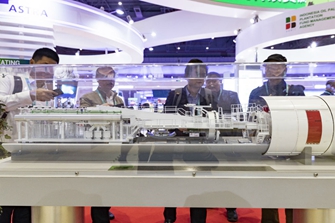
CIIE: A Global Beacon of Opening up
The first China International Import Expo (CIIE) kicked off on November 5 in Shanghai with a keynote speech from Chinese President Xi Jinping at the opening ceremony. Xi’s speech conveyed an important and inspiring message to the world: China remains steadfastly committed to expanding its opening up.
2018-12-25 -
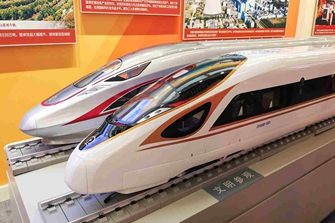
Liu Zhiqin: Mixing miracle with dream
There are many miracles in the world and in the process of human civilization. But the rise of China is, among them, the greatest. In just 40 years, China accomplished the most marvelous spectacle in human development, achieving huge societal progress and lifting the living standards of billions of people.
2018-12-20 -
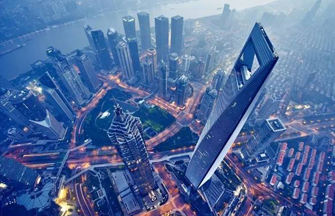
Liu Zhiqin: China’s development model belongs to the world
As globalization goes deeper, economic and trade ties between China and most other countries in the world have seen rapid growth. In this new era of high interconnectivity and win-win cooperation, China has learned from the development experience of countries worldwide with a humble attitude and honest diligence to form its unique "socialism with Chinese characteristics" development model. In this process, China borrowed experience from the world's most developed countries and set foot on a development path that was suited to its own situation. This model has powered the economic take-off and soaring growth of China.
2018-12-19 -
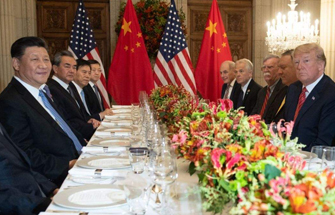
Wang Wen: China’s contribution to G20 Buenos Aires Summit
It is undeniable that China has made great achievements and contribution to the 2019 G20 leader’s summit in Buenos Aires, Argentina. The most important one is the successful meeting between the Chinese and US leaders, which has attracted much attention, and the two sides reached a consensus to stop imposing new tariffs. It shows that the decision makers of the two countries are solving this problem in a rational and objective way.
2018-12-12 -

Jia Jinjing: Working together so everyone wins
From November 30 to December 1, the 13th summit of the Group of 20 (G20) was held in Buenos Aires, capital of Argentina. The event took place at a crucial moment for the G20 nations to steer the world economy and improve global governance. In his speech at the first session of the summit, Chinese President Xi Jinping noted that “over the past decade, we have braced difficulties together, navigated the global economy out of recession and brought it back to the track of recovery and growth. Ten years later, let us work with the same courage and strategic vision and ensure that the global economy grows on the right track.”
2018-12-10
























































































 京公网安备 11010802037854号
京公网安备 11010802037854号





